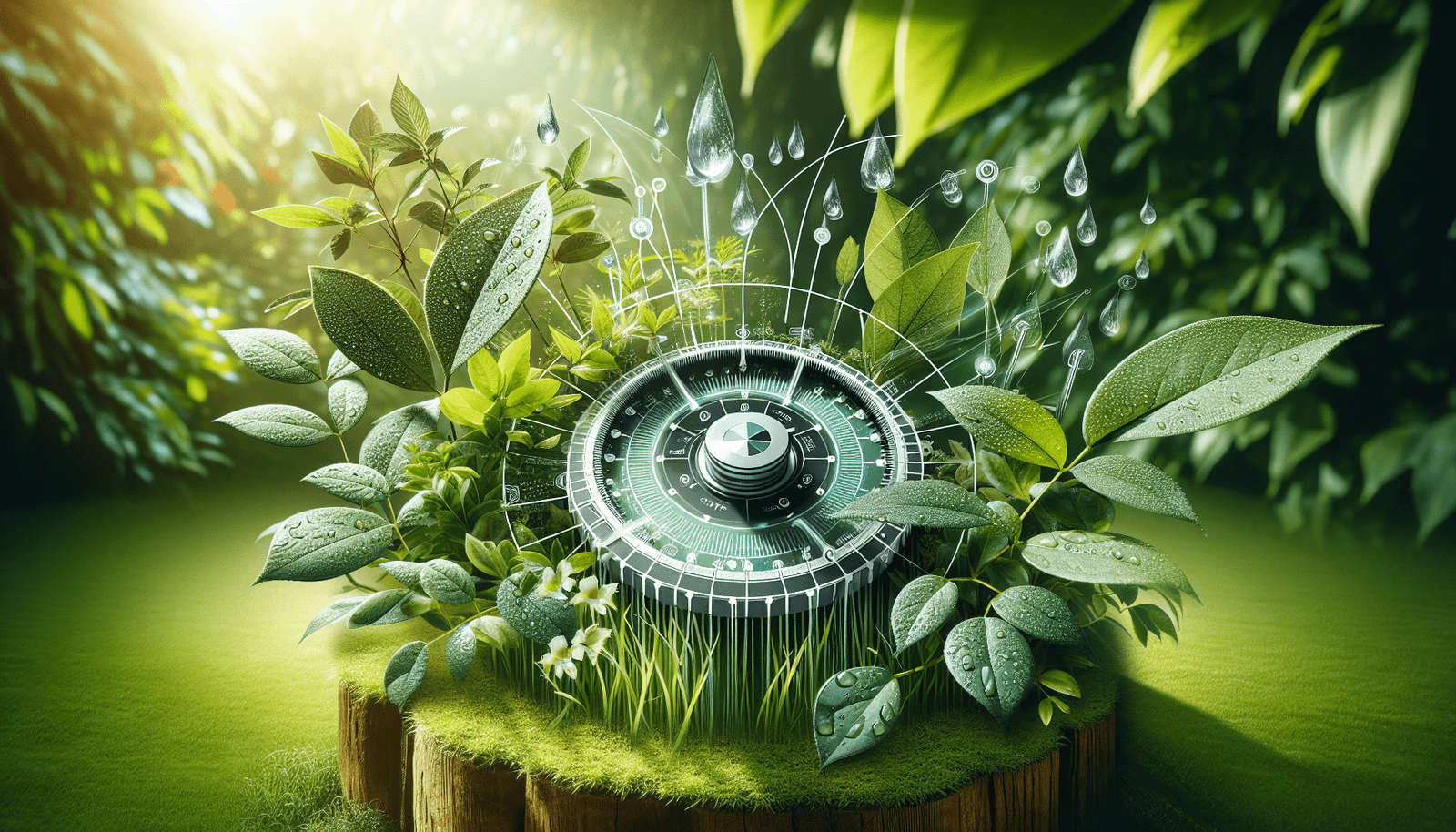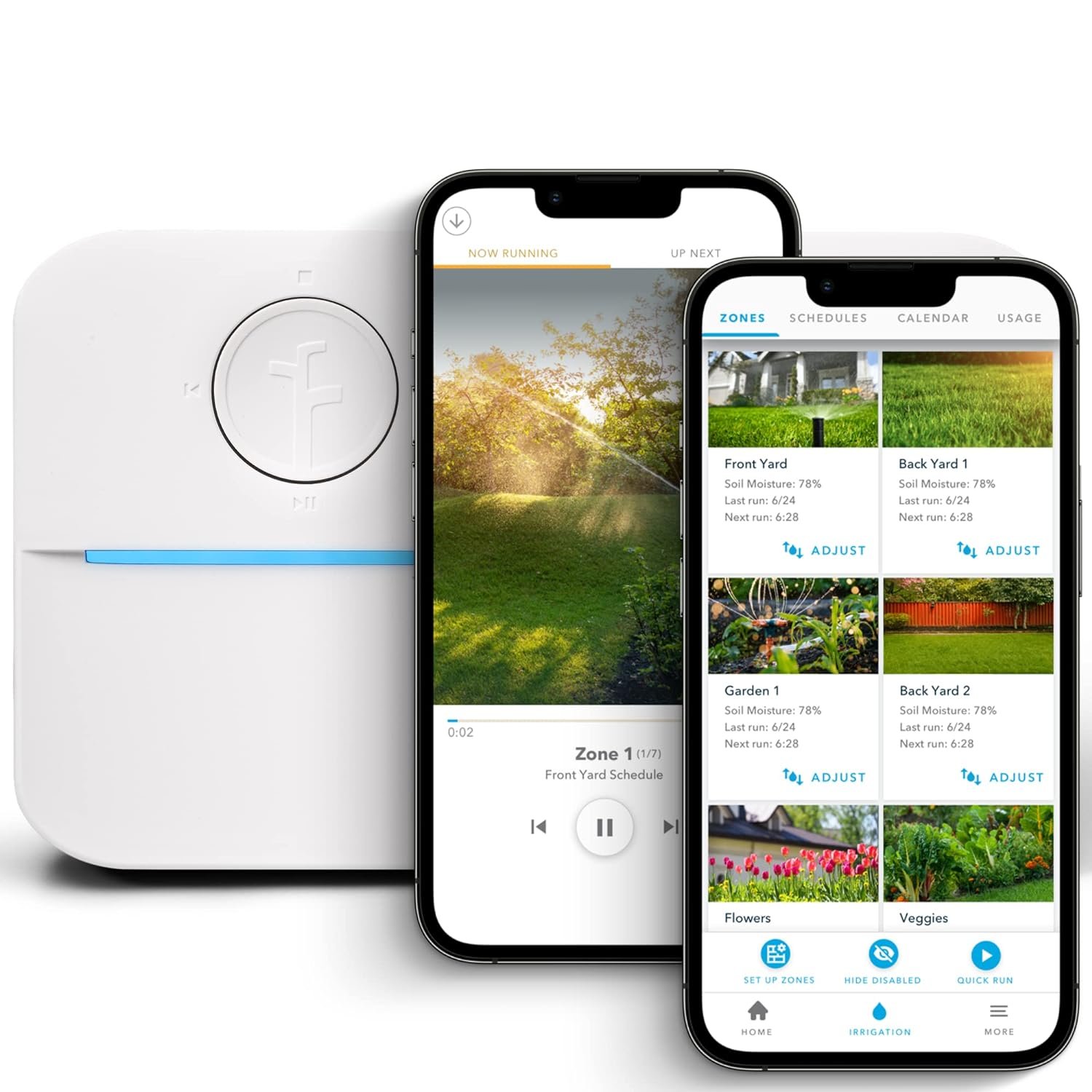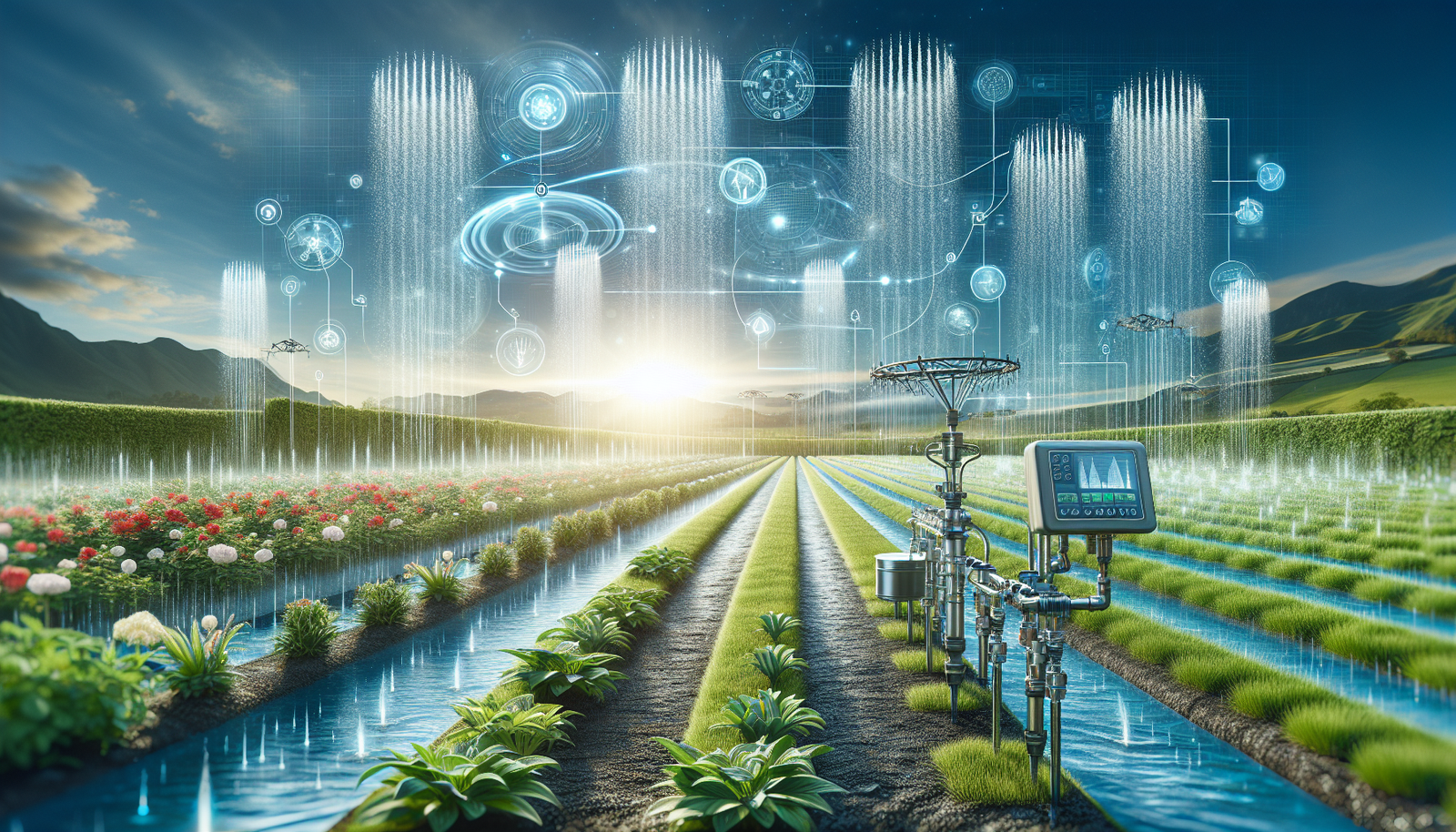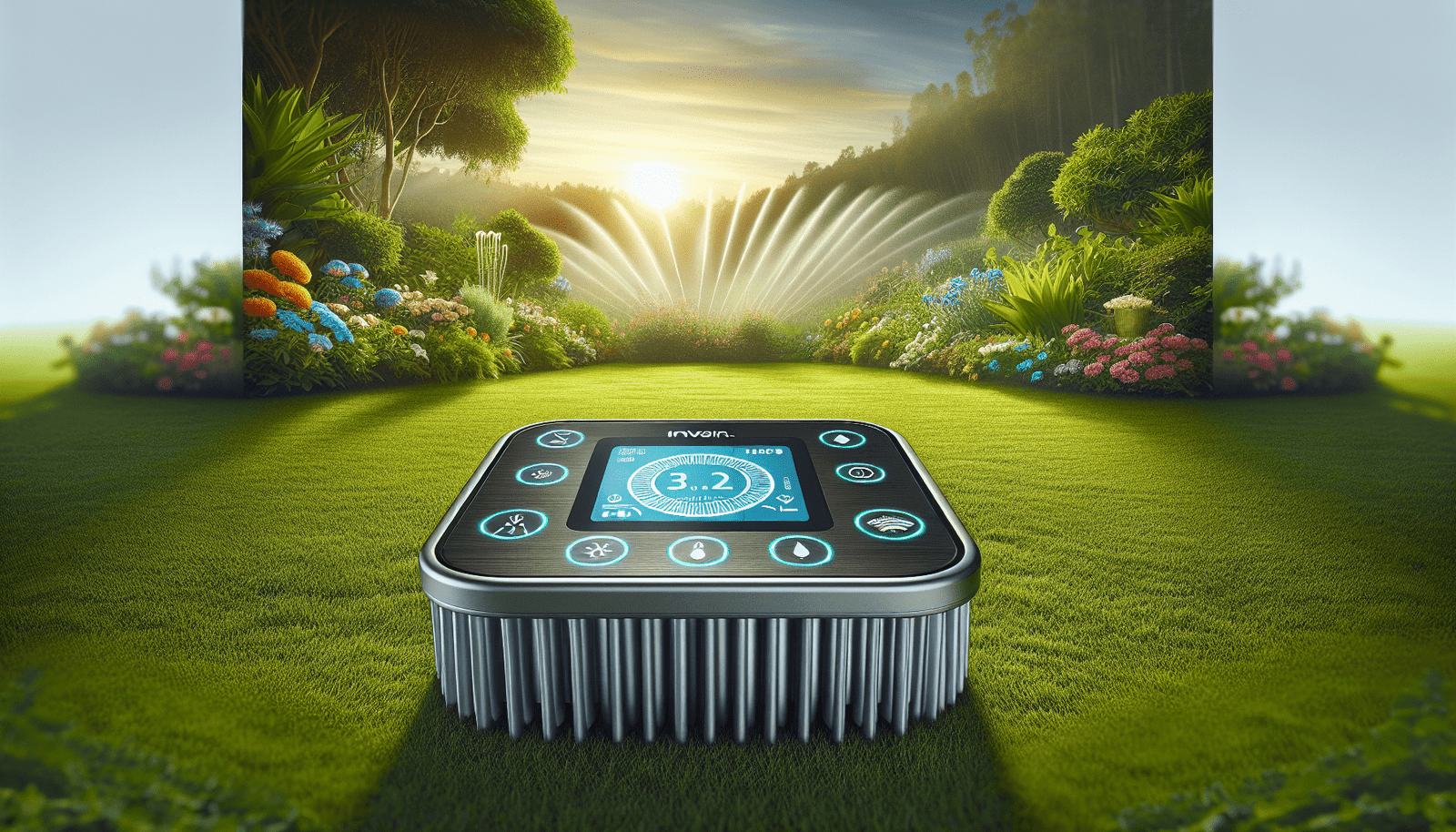Have you ever wondered how you could save on your water bill while maintaining a lush, healthy garden? Watering your lawn or garden can sometimes feel like a juggling act between ensuring plant health and managing costs. This is where smart irrigation comes into play. With the rise of smart technology in everyday life, the concept of smart irrigation is gaining traction among homeowners and garden enthusiasts alike.
What is Smart Irrigation?
Smart irrigation is a modern solution that integrates technology into watering systems, allowing for more precise and efficient water use. Unlike traditional irrigation systems that work on pre-set timers, smart irrigation systems use real-time data and sensors to determine when and how much to water your plants. This ensures that water is used optimally, reducing waste and saving you money on your water bill.
How Does Smart Irrigation Work?
At its core, smart irrigation systems work by gathering environmental data through a series of sensors placed in your yard or garden. These sensors measure soil moisture, weather conditions, and even plant water needs. Some systems are connected to weather forecasts, automatically adjusting watering schedules based on upcoming rain or temperature changes. This data-driven approach ensures that your garden receives the right amount of water at the right time.
Benefits of Smart Irrigation Systems
There are several benefits to using smart irrigation systems, both for your wallet and the environment.
Cost-Effectiveness
One of the most attractive features of smart irrigation is its potential to significantly lower your water bills. By using water only when necessary, these systems can reduce water waste and prevent overwatering. This not only saves money but also leads to healthier plants, which require less attention and resources in the long run.
Water Conservation
For eco-conscious individuals, smart irrigation represents a sustainable solution to water management. By optimizing water use, these systems help conserve a precious resource and reduce the environmental footprint of gardening.
Improved Plant Health
Overwatering can lead to numerous plant health issues, including root rot and fungal diseases. By applying the right amount of water at the optimal time, smart irrigation systems help prevent these issues, promoting healthier and more resilient plants.
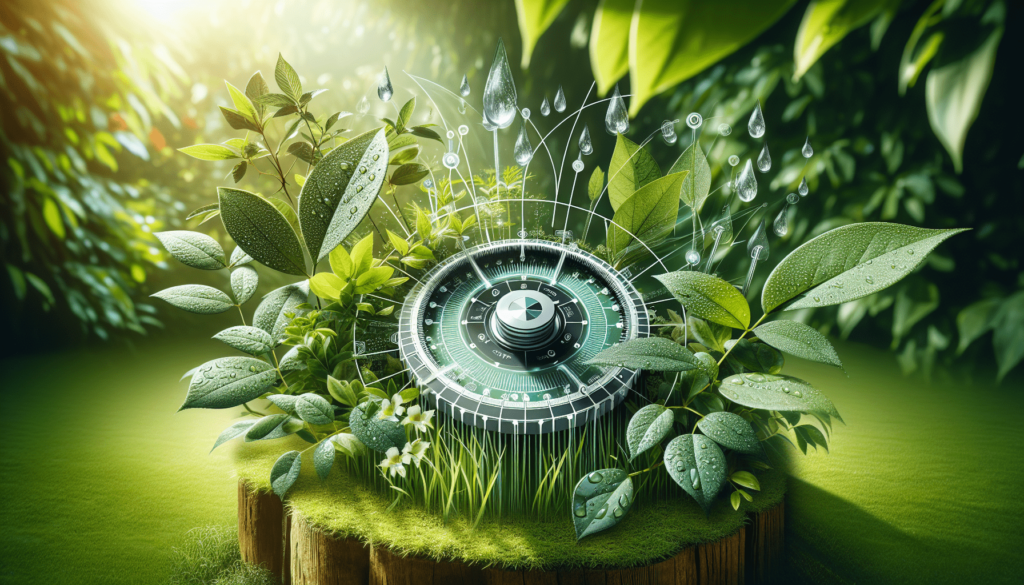
Key Features of Smart Irrigation Systems
When considering a smart irrigation system, it’s essential to understand the key features that can make them so effective.
Weather-Based Irrigation
Many smart irrigation systems can connect to local weather stations. This allows them to adjust watering schedules based on real-time weather conditions, ensuring that you’re not watering your garden right before a downpour.
Soil Moisture Sensors
Soil moisture sensors are a critical component of smart irrigation systems. They provide accurate measurements of soil conditions, which the system uses to determine the necessary watering frequency and duration.
Remote Access and Monitoring
With the integration of smart home technology, most smart irrigation systems can be controlled remotely via a smartphone app. This feature allows you to monitor and adjust your watering schedules from anywhere in the world, giving you peace of mind while you’re away.
Best Smart Irrigation Products
With many products available on the market, finding the right smart irrigation system can be a daunting task. Here are a few recommendations based on efficiency, cost, and user reviews.
Rachio Smart Sprinkler Controller
The Rachio Smart Sprinkler Controller is known for its easy integration with smart home devices and excellent water-saving features. It connects to weather forecasts and provides flexible scheduling, adjusting automatically to avoid unnecessary watering. Additionally, it offers detailed reports on your water usage, helping you better understand your garden’s irrigation needs.
Orbit B-hyve Smart Indoor/Outdoor Controller
Orbit B-hyve’s controller stands out for its affordability without compromising quality. It also offers weather-based watering adjustments and includes a unique feature: automatic shut-off when rain is detected, further conserving water and lowering costs.
Netro Smart Sprinkler Controller
The Netro Smart Sprinkler Controller offers AI-based learning to adapt to your garden’s needs. Over time, it learns about your landscape’s water requirements, optimizing irrigation schedules accordingly. It also provides extensive data analysis, giving you insights into your water use and efficiency.
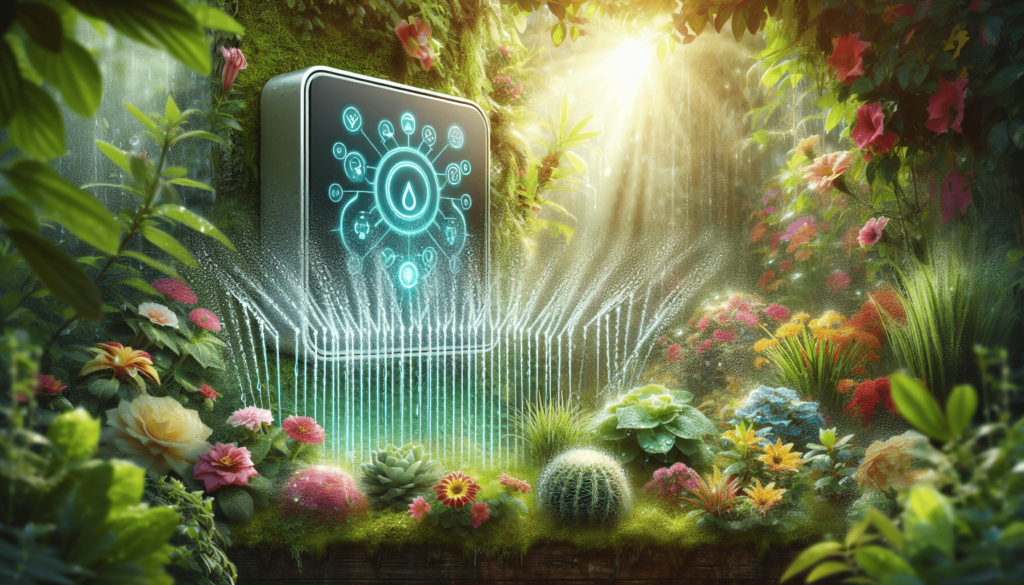
Transitioning from Traditional to Smart Systems
Switching from a traditional irrigation system to a smart one might seem overwhelming, but it can be a straightforward process with the right approach.
Assess Your Current System
Start by evaluating your current setup. Determine the areas that require irrigation and assess whether your existing system has components compatible with smart upgrades.
Choose the Right System
Selecting a compatible smart irrigation system is crucial. Consider factors such as the size of your yard, budget, connectivity options, and specific features you require. Recommendations from friends or online reviews can be invaluable during this process.
Installation and Setup
Most smart irrigation systems come with user-friendly guides for installation. However, if you’re not comfortable with DIY projects, hiring a professional can ensure a smooth transition. Once installed, take time to configure the settings and familiarize yourself with the system’s app or control panel.
Financial Considerations
Understanding the cost versus savings over time is an essential part of deciding whether to invest in a smart irrigation system.
Initial Investment
The upfront cost of smart irrigation systems can range from a couple of hundred to several thousand dollars, depending on complexity and features. However, many users find that the efficiency and savings on their water bills offset these initial expenses over time.
Long-term Savings
A smart irrigation system can reduce water usage by up to 30% or more, translating to significant savings on your monthly water bill. Moreover, the enhanced efficiency minimizes maintenance and replacement costs associated with plant health issues caused by over or under-watering.
Eco-Friendly Tax Credits and Rebates
Some regions offer financial incentives for installing water-saving technologies. Check local government or utility company programs, as you might qualify for rebates or tax credits, further increasing your savings.
Technological Advancements
As technology evolves, smart irrigation systems are becoming more advanced, offering even greater efficiency and convenience.
Integration with Smart Homes
Modern smart irrigation systems are designed to integrate seamlessly with other smart home devices, creating an interconnected ecosystem. Voice control through assistants like Alexa or Google Assistant can offer hands-free operation, adding another layer of convenience.
AI and Machine Learning
AI and machine learning are making their way into smart irrigation systems, offering more precise watering by considering historical data alongside real-time conditions. These advancements allow systems to predict future watering needs with increasing accuracy.
IoT Connectivity
The Internet of Things (IoT) enables these systems to communicate with each other and other smart devices in your home, streamlining operations and offering a cohesive approach to home automation.
Pros and Cons of Smart Irrigation Systems
Before making a decision, it’s vital to weigh both the advantages and disadvantages of smart irrigation systems.
Pros
- Cost Savings: Reduced water usage means lower bills.
- Efficient Water Use: Systems adjust based on real-time data.
- Remote Management: Control your system from anywhere with internet access.
- Better Plant Health: Avoids over and under watering, promoting healthier plants.
Cons
- Initial Costs: Can be expensive to purchase and install.
- Complex Setup: May require professional installation.
- Dependence on Technology: System functionality relies on technology, which can have glitches or require updates.
Conclusion
Switching to a smart irrigation system provides a clear pathway to savings and sustainability. By tailoring water use to actual needs and integrating technological advancements, these systems help conserve water, save money, and improve plant health. While initial costs might seem significant, the long-term benefits make smart irrigation a worthwhile investment for any eco-conscious homeowner. Embracing this technology paves the way not only to a lower water bill but also to a greener, more efficient garden.
Disclosure: As an Amazon Associate, I earn from qualifying purchases.
